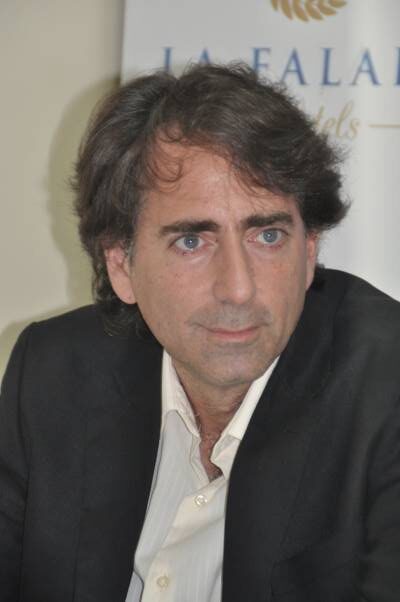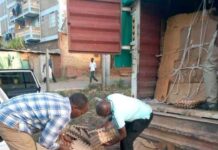By Yossef Ben-Meir Marrakech, Morocco
A decentralized governance administration, whose procedures and functioning are defined from implementing a wide range of local development projects across a country, generates results that appeal to a broad spectrum of social scientists and activists. People who seek sustainable growth often appreciate decentralization’s emphasis on subnational participation, cross-sectoral partnership, and local control.
Essentially, socio-economic and environmental projects that are identified by the local communities who manage and gain from them, are satisfying the key determining factor (underscored from evaluations globally over time) for sustainability (i.e. people’s participation). Indeed, a diversity of worldviews argue that centralization is a primary cause of social problems, and therefore may recommend that free association and the pursuit of development that reflects local desires could alleviate causes of alienation and other forms of deep human dissatisfaction and dysfunction in society.
In Palestine, not only can these and the other benefits manifest in the people’s lives as a result of community-built decentralization, but doing so would additionally promote self-reliance that could become a vital factor in its national life. By forging mutually beneficial ties among Palestinian people-to-people relationships, as well as externally particularly regarding their dependency relationship with Israel, then this form of self-reliant development that is community-managed and meets the public’s needs could reduce Palestinian economic and political vulnerability to shocks and instability.
Self-reliance seeks and invests national and international revenue into local development projects that are community-determined, and maintained by the ultimate beneficiaries. Recent generations of international development experience have underscored the enduring vitality that ensues from the participatory approach at the local level where communities analyze their needs, prioritize actions, and implement sustainable development.
However, studies and evaluations over the past decades have also highlighted that even if people are free to participate in decision-making on local development, they may not feel themselves to be free, that their voices and needs are valid, or that they know what specifically they most want in their lives. Community members, particularly those who have been historically marginalized, including rural people, women, and youth may not have the self-belief or may not have had the opportunity to forge their vision forward and thereby realize the opportunity of open participation in development planning.
Therefore, community-driven decentralization that is able to enhance self-reliance from the application of participatory democratic procedures for community development, should first be catalyzed with personal and collective empowerment workshops. This will help to ensure that community members have a clear sense of their preferred development enterprises with the confidence and decision-making and other action capabilities to pursue them.
The continued divisions between Fatah and Hamas and the effects of Israeli occupation heavily impede the human service work of Palestinian civil society in the West Bank and Gaza. Israeli policies in East Jerusalem have also seriously undermined the work of Palestinian civil organizations in their missions of human development. Decentralization of development could be the critical driver of Palestinian renewal of its democratic processes and citizens’ participation in decision-making regarding their community and national future.
This strategy begins with empowerment’s critical reflection with marginalized groups and strengthening of local organizations, then segues to local sustainable development, decentralization-building, and national self-reliance. The mission and emphasis on community participation of Palestine’s Ministry of Local Development, headquartered in the West Bank, can play a key role with strengthened capacities in advancing local development movements. An intent is to reduce Palestinians’ exorbitant level of economic reliance upon Israel and the external influence and control that can be exerted upon them.
Furthermore, the community pursuit of empowerment through participation and inclusive dialogue that expands choices, also bears features of reconciliation processes that promote mutual respect and caring among the participants. For example, personal empowerment and adaptation are encouraged when an individual, conscientiously and assuredly, crystallizes in the group setting the goals and necessary issues to resolve.
When such affirmations are established (assisted by trained facilitators who provide thoughtful inquiry that continuously deepens the participant’s introspection), vital acknowledgment by the observing participants is implicit and real. The participants engaged in narrative-sharing is fully consistent with the beginning phases in managing reconciliation endeavors.
In regards to Palestian-Israeli reconciliation, local communities in Palestine knowing and pursuing the development projects most important to their localities, creates a basis for international exchange whereby partnerships are defined based on Palestianian locally expressed goals, rather than externally presumed ones. Reconciliation in this form would be based on relationships founded on Palestianian community project design and management, which should be a fundamental purpose and guide in any new or amended treaty.
This analysis focuses on locally applied methodologies within the conditions of Palestine and with the Palestinian people and the resulting national building of a potential decentralized development system. It provides projections based on global literature and observation on how from the launching and magnitude of local participatory movements. Sustainability alters internal national structures as they relate to dependency conditions and thereby may redefine Palestine’s relationship with Israel and the world.
Dr. Yossef Ben-Meir is a sociologist and President of the High Atlas Foundation in Morocco.









